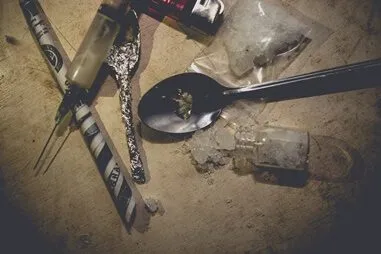
If you’ve been arrested on a domestic violence charge, assault, disorderly conduct, or drug possession, you should speak to an experiencedMassachusetts criminal defense attorneyas soon as possible. You cancontact us onlineor call our office directly at(781) 740-0800to schedule your free consultation with one of our top-notch defense lawyers at Nate Amendola Defense. We have been proudly servicing clients throughoutNorwell, Massachusetts, and surrounding areas such as Plymouth, Barnstable, Nantucket, and more.
Many defendants mistakenly believe that carrying drug paraphernalia is less of an offense than carrying the drugs themselves. Massachusetts has implemented strict laws outlawing the tools needed to manufacture and ingest drugs as a way to arrest and convict drug traffickers. However, ourMassachusetts drug crime attorneyexplains how these laws can also be used to prosecute anyone—even people carrying drug paraphernalia for their own personal use.
What Is Considered Drug Paraphernalia in Massachusetts?

Under Massachusetts law, it’s unlawful for anyone to sell or purchase drug paraphernalia or manufacture drug paraphernalia with the intention of selling it. Unfortunately, the state takes a broad view on which items constitute drug paraphernalia.
Some objects that may be considered drug paraphernalia include:
- Growing equipment used to plant, propagate, cultivate, grow, or harvest any species of plant from which a controlled substance can be derived
- Manufacturing equipment (such as chemical compounds, liquids, tablet presses, bowls, or mixing devices) used to convert, produce, refine, or process illegal substances
- Separation equipment (such as gins, grinders, and sifters used to remove excess marijuana plant parts)
- Equipment or devices used to increase the potency of a controlled substance
- Items used to package small quantities of a controlled substance for sale (such as baggies, balloons, envelopes, vials, or labels)
- Testing equipment used to determine the strength or purity of a controlled substance
- Measuring devices (such as scales, pipettes, or calipers) used for weighing or measuring controlled substances
- Equipment used for the ingestion of illegal substances by drug users (such as pipes, bongs, rolling papers, roach clips, vaporizers, crack pipes, straws, mirrors, razors)
- Equipment used to inject controlled substances into the body (such as spoons, hypodermic needles, tourniquets)
- Any other objects used to introduce narcotics or controlled substances into the body
For a free legal consultation, call (781) 740-0800
Penalties for a Drug Paraphernalia Conviction
If this is your first offense and does not involve any felony charges, it’s possible to avoid the worst possible consequences, including creating a criminal record. However, if there are aggravated circumstances or your case is not handled by an experienceddrug possession defense lawyer, you could be facing high fines and jail time for drug paraphernalia possession.
Penalties for possession of drug paraphernalia can include:
- A year in jail. If you are found guilty of a misdemeanor drug paraphernalia offense, you could be sentenced to anywhere between 1 and 2 years in a house of correction. The judge may also impose a fine between $500 and $5,000.
- Two and a half years in jail. If you are convicted ofintent to sell drug paraphernalia, you may be facing a minimum of 1 year and a maximum of 2.5 years in a house of corrections, a fine up to $5,000, or both fines and jail time.
- Three years in state prison. If you are convicted of selling drug paraphernalia to someone under 18 years old, you could be sentenced to a maximum of 5 years and a minimum of 3 years in jail, fines up to $5,000, or a fine and jail time. Since selling drugs or drug paraphernalia to a minor is a felony, you may be ordered to serve your sentence in state prison.
It’s important to remember that the prosecutor has the burden of proving an accusation of intent to sell drug paraphernalia. In order to get a conviction, a prosecuting attorney must show that you knew that the object(s) would be used to prepare, convert, ingest, cultivate, process, or otherwise introduce an illegal controlled substance into the human body. The prosecutor must also show that you had knowledge and control over the objects or allowed them to be on your property.
If you or someone you know has been arrested for drug-related offenses, you need help from an attorney who has successfully defended numerous clients against these charges. Nate Amendola Defense exclusively handles criminal cases and offers a free initial case review to know where you stand.Contact ustoday to start building a personalized, aggressive defense.
Call or text (781) 740-0800 or complete a Free Case Evaluation form


